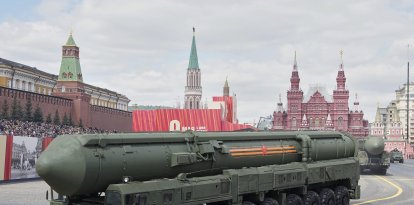Israel spent years tracking Nasrallah and "his movements closely" but refrained from eliminating him to avoid a major war
Mossad reportedly succeeded in locating the terrorist accurately on several occasions after closely monitoring his movements and activities.

Hassan Nasrallah
A recent report reveals that the Mossad, Israel's foreign intelligence agency, had tracked down the recently assassinated Hezbollah leader, Hassan Nasrallah, several years ago and had multiple opportunities to eliminate him. However, Israel held back to prevent his death from sparking a war not only with Hezbollah, but also with Iran, the terrorist group's main ally.
According to a report from The Washington Post, Israel "tracked his [Nasrallah's] movements closely," accumulating information on his movements and activities. The Mossad succeeded in locating him on several occasions with precision, but the Israeli high command, after assessing the possible consequences, chose not to proceed, prioritizing regional stability and avoiding an escalation that would affect both Israel and Lebanon.
Strategic technology at Israel's service
In addition to the surveillance on Nasrallah, Israel conducted one of the most complex intelligence operations against Hezbollah. Two years ago, the terrorist group acquired 5,000 Apollo beepers, manufactured by a Taiwanese company, confident that these devices were secure and undetectable to Israeli services. However, these devices were assembled in Israel for a hidden purpose: to trigger remotely controlled explosions. On Sept. 17, thousands of these beepers exploded simultaneously in Lebanon and Syria, eliminating and maiming up to 3,000 Hezbollah fighters, according to Israeli and U.S. sources.
This attack not only significantly weakened Hezbollah, but also sent a clear message to Iran: Israel possesses the capability to execute large-scale covert operations when it deems necessary. In retaliation, Iran launched about 180 missiles against Israel, warning that it could escalate attacks if the conflict continued to escalate.
Sources for the Mossad's plans
The Washington Post clarified that details of these operations were gathered from interviews with Israeli, Arab and U.S. security officials, in addition to politicians and diplomats briefed on the events. Lebanese officials and people close to Hezbollah also participated, who spoke on condition of anonymity due to the confidential nature of the information. According to these sources, the plan was conceived at Mossad headquarters in Tel Aviv, involving agents and collaborators in several countries during years of preparation.

























